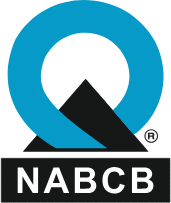product certification
NABCB provides accreditation to Product Certification Bodies as per requirements of International Standard ISO/IEC 17065:2012 “Conformity assessment – Requirements for bodies certifying products, processes and services”. NABCB is also signatory to the Mutual Recognition Arrangements of International Accreditation Forum (IAF) and Asia Pacific Accreditation Cooperation (APAC) facilitating acceptance of certified products, processes or services within the countries under this arrangement.
The accreditation scheme provides formal recognition of the integrity and competence of Product Certification Bodies (PCB). The certification of products, processes or services will provide confidence/assurance to all interested parties like customers, government authorities, regulators, industries whose products, processes or services are certified, that they comply with specified requirements in standards and other normative documents.

NABCB offers following Product Certification Schemes:
GLOBALG.A.P. is the internationally recognized standard for farm production. G.A.P. stands for Good Agricultural Practice – and GLOBALG.A.P. is a voluntary standard for the certification of agricultural products worldwide for safe and sustainable agriculture practices. GLOBALG.A.P. aims to advance the principles of Good Agricultural Practice throughout the world through collaboration, exchange and dialogue to harmonize Good Agricultural Practice all over the world.
National Accreditation Board for Certification Bodies
Institution of Engineers Building, Ist Floor, 2 – Bahadur Shah Zafar Marg, New Delhi – 110002, India.
Phone: +91-11- 2337 9260 +91-11- 2337 8056
Email: nabcb@qcin.org





